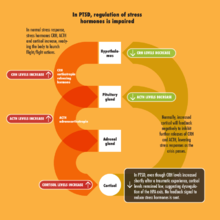Smiles can actually produce reduced or increased physical stress responses in the person receiving them, depending on the smile’s perceived meaning.
Three distinct social functions of smile have recently been categorized: social smoothing (bonding), reinforcement (rewarding), and social challenge (disapproving).
A study now shows that functionally different smiles are sufficient to boost or dampen measureable physical, hormonal stress responses. Its findings are reported in the journal Nature Scientific Reports.
The study
When people are being evaluated, their whole body responds. Verbal evaluation causes strong activation of our central stress response system, the brain-hormonal axis (hypothalamic-pituitary-adrenal, HPA, axis). These stress response may include changed heart rates, sweaty palms, faltering voice and so on.
Researchers in this study investigated the stress response of 90 male undergraduate students to the non-verbal communication of different types of smiles in an evaluative social situation.
They measured heart rates and cortisol levels in the saliva of the participants as indicators of stress response activity.
Results showed that compared to bonding and rewarding smiles, disapproving smiles were associated with higher cortisol levels and higher heart rates in people who perceived the smiles.
These individuals perceiving disapproving smiles took longer to return to their baseline, normal cortisol levels after the evaluation situation was over. These physical stress responses are similar to reactions to negative verbal feedback.
The researchers suggested that smiles with different social functions have different effects on our physical stress response activity when they are perceived as evaluative feedback in social situations.
They also found that participants with higher heart-rate variability – the variation in the time between each heartbeat – showed more nuanced responses to different smiles. This is interesting as heart-rate variability has been associated with facial recognition accuracy.
These findings provide further evidence that smiles do not necessarily constitute positive non-verbal feedback, and that they may impact social interactions by affecting the physiological reaction of people who perceive them.



